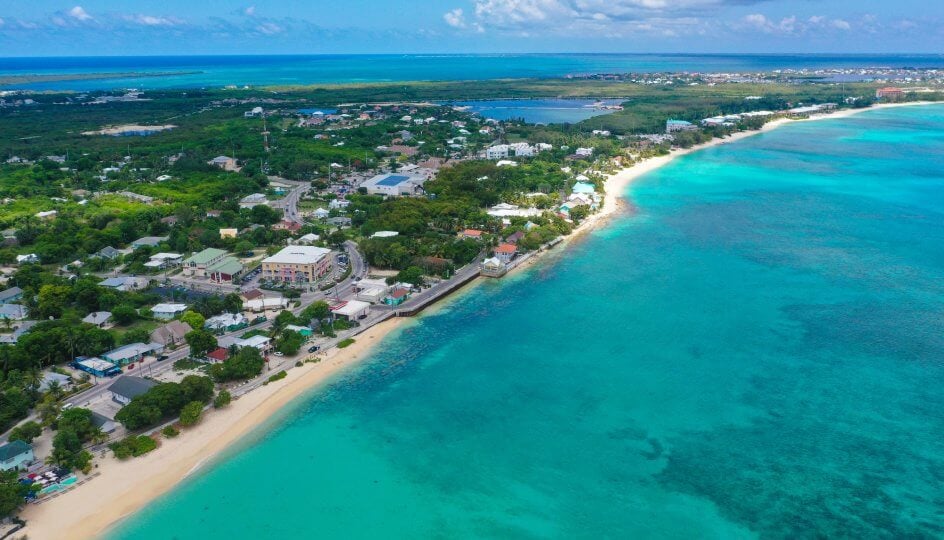GBCI 2022: Business complexity in South America

TMF Group’s Global Business Complexity Index 2022 (GBCI) explores 292 different indicators relating to business complexity, to provide in-depth analysis of the global and local challenges that impact on the ease of doing business across the world.
Insights from the GBCI can help investors pick and manage their target markets with greater confidence. Those jurisdictions that are perceived to be the most complex are often among the most attractive for talent and customer opportunities. Local knowledge will help when it comes to navigating this complexity, allowing you to managing exposure to compliance risk and find your path to growth.
In this article, we take a deep dive into the South America region, to examine the drivers of business complexity in each jurisdiction, or conversely, what makes them simpler environments for investment or setting up operations.
1. Brazil
Brazil once again tops the ranking as the most complex jurisdiction after being at number one in 2021. The key drivers of complexity in Brazil are the volume of regulatory changes each year, as well as the three layers of tax regimes to comply with – federal, state and municipality.
Last year Brazil’s complexity was driven by short-term changes made in response to the Covid-19 pandemic. This included temporary government incentives to help businesses reduce their payroll costs, and tax reductions to help companies retain their workforce. These adaptive changes came with a heavy administrative burden. Now, in this year’s GBCI, the cessation of these incentives comes with a similar administrative workload as businesses revert to normality.
On the plus side, Covid-19 accelerated Brazil’s already high levels of digitalisation. For example, prior to the pandemic, all notarial services required a physical presence, and the face-to-face signing of documents. This has been replaced by solutions such as digital formatting and video calls, and these changes look set to stay.
One of the most complex processes in Brazil remains the incorporation of new companies, taking a very long 45 days as businesses deal with three layers of regulation. At the federal level, businesses must set up a tax ID, and select their tax code based on the specific sector of their company. Companies pay VAT and service tax at the state level, and revenue tax at the municipal level. Revenue taxes vary from city to city. While this lengthy process is now mostly digital, companies must have an appointed locally residing representative. Foreign shareholders must appoint a resident legal representative and the local entity must have a locally residing officer.
Our experts in Brazil anticipate the year ahead to be ‘business as usual’. They predict that no major reforms will occur in advance of the presidential elections in October 2022. From 2023 onwards, tax reform and simplification will likely become an active discussion on the political agenda.
While regulations in Brazil are complex, the jurisdiction presents opportunity, with a large consumer market of 213 million inhabitants. Assets under administration in Brazil are at an all-time high, with growth in the energy, infrastructure, and services sectors.
The dynamic of doing business in Brazil is one where you need to actively monitor for regulatory updates. Brazil is one of the jurisdictions with the highest number of legal or tax changes each year.
Dive into the data for Brazil on the Complexity Insights dashboard.
3. Peru
Complexity increased significantly in Peru since 2021, moving up from 24th to 3rd position in the ranking. This follows political unrest over the past six years, with corruption leading to caretaker governments. The inauguration of new president Pedro Castillo is contributing to uncertainty due to a perceived lack of political experience.
The process of incorporation is another key driver of complexity for both foreign and local business. It takes around 20 days, with the need for in-person signatures and meetings with notaries contributing to this extended period.
Another complexity factor is the monthly tax reporting requirements introduced in 2021. These require any business with monthly accounts of 10,000 soles (€2,540) or more to submit tax reports, with a view to reducing tax evasion. While this can be cumbersome for businesses, it does appear to support the drive for transparency.
Peru remains a highly attractive jurisdiction thanks to its rich natural resources such as zinc, copper, iron, and lead. In order to protect these resources and drive sustainability, Peru has laws and legislation related to the treatment of land. For example, the jurisdiction mandates public consultations that can take up to a year to explore the environmental impact of businesses seeking to profit from natural resources. Although this does increase complexity, it boosts the jurisdiction’s environmental credentials, making it more attractive to organisations and individuals driven by sustainability.
I think one of the big things that needs to change to make Peru simpler for businesses is the introduction of e-signatures. At the moment, there is a need for in-person signatures, and visits to notaries. This can slow things down and make things more complex.
Dive into the data for Peru on the Complexity Insights dashboard.
5. Colombia
Colombia has experienced many legislative changes over the last ten years. Taxes are very complex, having to be filed at national, regional and local level. The presence of more than 1,200 municipalities is one of the key drivers of complexity for businesses in the jurisdiction.
During election years the country is at a standstill, apprehensive until the outcome of the election is clear, and this has become more severe over the last two elections in which a viable centre-left candidate emerged.
Colombia has become a recent adopter of ESG legislation. A new law in December 2021 aims to create and preserve forests and other natural areas throughout Colombia, and the government has set out an agenda in line with the Paris Agreement to be carbon neutral by 2050. The government also introduced a new kind of employment law, whereby companies can receive incentives for hiring young people and/or women.
Dive into the data for Colombia on the Complexity Insights dashboard.
9. Bolivia
Local requirements are a key reason for Bolivia’s top 10 position, such as the need for a Bolivian national or locally resident legal representative, and foreign workers must not exceed 15% of a company’s total employees. Furthermore, the accounting system needs to be in Spanish and the local currency, managed by a certified accountant within Bolivian territory. These factors drive complexity for foreign businesses that are used to a more globalised approach.
The onus on paper filings also makes things more complicated. Companies have a legal obligation to keep paper records of activity for three to eight years, depending on the government entity that supervises it. This ranges from its constitution and meeting minutes to accounting records. Despite this ‘old fashioned’ approach the jurisdiction is gradually becoming more digitalised with declarations of management taxes, pension funds and salary now being conducted via web portals.
Bolivia is progressive when it comes to sustainability legislation. For instance, at the beginning of commercial activity every company must obtain an environmental licence to be able to operate and stay valid, with commitments depending on their line of activity. This is attractive to businesses and investors seeking to operate in a more sustainable manner. However, failure to comply with this licence can be subject to fines.
Although businesses can face complexity in Bolivia, it is still an attractive jurisdiction thanks to its wealth of natural resources. With a commitment to sustainable practices, there is hope that this attractiveness will continue, and complexity will reduce.
The digital declaration through web portals of management taxes, declarations before the Pension Fund Administrators (AFPs) and salary lists for the Ministry of Labour do help to make things simpler for businesses in Bolivia.
Dive into the data for Bolivia on the Complexity Insights dashboard.
12. Argentina
Ranking 12th in our GBCI 2022, Argentina remains one of the most complex jurisdictions. However, it has become gradually simpler in recent years, in part driven by a move towards more digital processes. For example, there are some options to run payroll services in a digital way, such as digital payslips, hires and labour books.
However, challenges include the different levels at which laws, legislation and taxes are levied – state, provincial and municipal – creating complexity for businesses.
Constant regulatory changes generate uncertainty about the legal system and requirements that need to be complied with, particularly for foreign companies. There are lots of changes at the three different levels to contend with as well. A further factor is high taxation rates. For instance, debit and credit tax levied on transactions to and from bank accounts.
However, despite certain complexities that businesses can face, Argentina does remain a highly attractive jurisdiction for foreign direct investment due to its rich natural resources and high-yield investment opportunities.
The dynamic of doing business in Brazil is one where you need to actively monitor for regulatory updates. Brazil is one of the jurisdictions with the highest number of legal or tax changes each year.
Dive into the data for Argentina on the Complexity Insights dashboard.
15. Chile
Chile has become more complex in recent years. In 2020 it was one of the simpler jurisdictions, ranked 64th, therefore it has seen a significant rise in complexity.
A key driver of this shift is linked to the economic and political situation in the jurisdiction. Widespread protests began in 2019, known as the estallido social (social outburst). The protests were related to widespread dissatisfaction with the inequality, corruption, and the cost of living sparked by a rise in the Santiago metro fare.
In 2021, Chile elected a new president, Gabriel Boric. It’s hoped his presidency will bring more stability into the country, as well as a focus on creating a more equal society. For example, Boric announced that he will implement a majority female cabinet as part of his wider equality aims.
The jurisdiction has also seen tax reforms over the past few years that aim to drive a moral approach to taxation, as often seen in Europe, by taxing wealthier individuals more to create a more equitable society. Due to such a focus in the jurisdiction on driving equality and stability in the future, Chile is set to become simpler in the years to come.
Chile has clear regulations and modern information web portals that mean obtaining and uploading information is easy and quick. However, the initial process of setting up a new entity and starting a business in Chile can be somewhat slow compared to other jurisdictions, and needs the support of local experts.
Dive into the data for Chile on the Complexity Insights dashboard.
19. Paraguay
Paraguay has become more complex in recent years, with one driver being the need to have a Paraguayan ID or local representative in order to invest.
Incorporating a business in Paraguay is relatively straightforward. However, there are certain steps to the process, such as initially drafting company bylaws, that can create complexity. This requires organisations to declare the subscribed capital, legal representative, and the company address before beginning to trade. This can be a slow process, taking up to 12 weeks.
Further challenges come from long waiting times for public bodies to act and limited communication with them. This can make certain procedures more cumbersome for organisations seeking to operate in Paraguay.
Despite these complexities, Paraguay remains a highly attractive jurisdiction due to its geographical position in the centre of South America. It has also seen an increase in foreign direct investment alongside this growth.
Operating in Paraguay requires a Paraguayan ID or someone native to represent the business. Seeking advice from the right people or entities about local regulations helps to ease doing business.
Dive into the data for Paraguay on the Complexity Insights dashboard.
21. Venezuela
Venezuela has increased in complexity over recent years. Key drivers are the reliance on manual processes and face-to-face interactions, as well as the recent political and economic situation in the jurisdiction.
In 2021, Juan Guaidó took over the presidency from Nicolás Maduro, following a long period of widespread dissatisfaction, and only two weeks into Maduro’s new six-year term as president. It’s a complex situation as certain organisations, such as the military, have sustained their allegiance to Maduro. The presidency of Venezuela is still unclear, with Guaidó and Maduro both holding certain levels of power within the country. Understandably, this ongoing situation has led to huge uncertainty, which impacts the ease of doing business in Venezuela.
As far as the over reliance on manual processes is concerned, there are no centralised records for entities and for almost every change in bylaws an annual general meeting (AGM) must be registered. This places an administrative burden on companies.
Covid-19 added complexity to operating a business in Venezuela. Legal filing still needed to be submitted in person, even though registries and notaries we closed almost all of the time. No systems or digital solutions were put into place to ease the situation.
The complexity of Venezuela is driven by the fact that there are so many processes that must be done manually, especially from the legal perspective. Adding the economic and political situation in the country, the difficulty increases as well as the times invested for getting things done.
Dive into the data for Venezuela on the Complexity Insights dashboard.
27. Uruguay
Uruguay is considered to be open to business and a flexible market in which to enter as a foreign company. It has historically been a stable jurisdiction, with transparent regulations and a flexible attitude to the transfers of funds in and out of the country.
When setting up in Uruguay, companies have the possibility to purchase a ‘shelf company’ which is already constituted with the authorities, thereby reducing complexity. Additionally, company bank accounts can be opened in Uruguayan pesos, US dollars or euros. Salaries can also be paid in any of these currencies, demonstrating the country’s desire to attract foreign companies. However, it is worth noting that taxes must still be paid to the government in Uruguayan pesos.
The country uses IFRS as its accounting standard to align to international standards and attract foreign investment. This does make operating more complex for local small companies, but it is a strong advantage for foreign businesses. Stakeholders can read the financial statements and consolidate them easily across the globe.
The major likely source of complexity in the future is the growing reporting obligations on companies, which are designed to prevent fraud and money laundering. Uruguay is not alone in this as there is a global push to reduce these harmful activities.
Uruguay is a very good country to do business in. Once a company is registered, which can take around two months, operating is quite simple because Uruguay is a stable country with clear rules that rarely change.
Dive into the data for Uruguay on the Complexity Insights dashboard.
40. Ecuador
A large amount of the complexity of doing business in Ecuador stems from constant changes to the political environment.
Businesses in Ecuador also face frequent changes to local tax regulation, and in January 2022, new national tax legislation came into force. This involved important changes to personal income tax, capital gains tax and corporate income tax. In addition, it altered the taxation of small businesses, with new regulation requiring fewer tax filings.
Employment law is also complex, and all entities operating in Ecuador are obliged to follow a 15% profit sharing scheme, which must be paid to employees. This is in addition to the ‘13th and 14th month’ salaries being paid to all employees.
New labour legislation is expected to come into force sometime this year. While this may, at least initially, bring about some additional challenges, it is expected to introduce more flexible rules in the hiring and termination of employees.
The incorporation of technology is helping to simplify business operations in Ecuador. Over the past couple of years, filling requests has been made easier, due to the implementation of electronic processes and the validity of the electronic signature.
In our region, the constant political changes are an aspect that make it complex to do business.
Dive into the data for Ecuador on the Complexity Insights dashboard.
The Global Business Complexity Index
The GBCI 2022 provides an authoritative overview of the complexity of establishing and operating businesses around the world. It explores factors driving the success or failure of international business, with a focus on operating in foreign markets, and outlines key themes emerging globally as well as local intricacies across 77 jurisdictions.
Explore the GBCI rankings, analysis and global trends to help you find your path to growth, amid the complexity of corporate compliance.
To download and read the report in full, visit the Global Business Complexity Hub today.
To find out more about the drivers of business complexity in the jurisdictions that matter to you, why not explore our Complexity Insights Dashboard?





